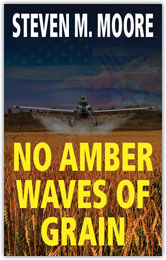Books in print…
There are hard-bounds, often lacking art because they have flyers, which are also often lacking art; trade paperbacks; and those small airport paperbacks—the latter two often with tasteless covers as well. Many older readers prefer them; younger generations (and book pirates?) prefer ebooks or audiobooks (are they pirated?), if younger generations read at all (they’re distracted by social media, computer games, and streaming video). Besides the negatives already hinted at, and being objective, there are more negatives for books in print than for ebooks (I have no experience with audiobooks, either as a reader or writer).
First, print books are expensive to make and therefore expensive for the buyer. An ebook is just a computer file, whether read on a laptop, ereader, or smart phone. A print book, no matter its format, costs more to produce, materials-wise, so the Big Five publishing conglomerates use that as an excuse to stick it to readers (and give writers fewer royalties?). It’s difficult to find a hardbound or trade paperback published by them for less than $20. They publish the paper versions first because that’s where they can scam the reading public more easily, so the ebook versions hit the market later (same for airport paperbacks that are the least expensive of the print versions).
Second, print books in any form are bad for the environment. Is sacrificing Mother Nature’s lungs, Earth’s forests, worth satisfying your preference for print? You might say, “It’s just one book.” Well no, if you’re an avid reader like I am, it’s many. And add up the numbers for a big print run from a Big Five publisher. (Celeb and scandal exposes are the worst!) You might also say, “I just borrow my print books from the library.” Okay, but there are still a lot of libraries! And they tend to feature the more popular books, even buying several copies of them, exacerbating the destruction to our forests.
Third, and something readers often don’t think about, is that print books take up space. You might read each one once or twice, and then they sit on your shelves, weighing them down. Or you give them away in a school’s book sale, say, a good deed to be sure, but what is done with those after they’re sold? Eventually, they all end up in landfills and certainly not replacing the forests that were destroyed to produce them! You don’t want an ebook, you can delete the file. Done. No sagging bookshelves, no more filling landfills, and no killing of forests.
When I started publishing, ebooks didn’t exist. (Amazing, right?) I chose two of those old POD (Print-on-Demand) firms because they didn’t make huge runs and only printed a book when it was sold. My ecological proclivities weren’t all that happy with the situation, but I lived with my crimes because I didn’t expect to sell that many books (and I didn’t!). But when ebooks appeared, I preferred them, as both a reader and writer. All my old POD books eventually had ebook second editions, and I preferred to publish only ebooks from then on.
There are some glaring exceptions, all due to my experimenting with traditional publishing: The first three novels in the “Esther Brookstone Art Detective” series have print versions, for example, the first two because they were published by Penmore Press, a traditional small press, and the third by Carrick Publishing to complete a trilogy. Other novels in that series only have ebook versions, though. The first novel in “The Last Humans” series, published by Black Opal Books, has a print version; the second only has an ebook version because that publisher and I parted our ways. (That also happened with Penmore, but for different reasons.) I’ve published a few other print versions as well with Carrick Publishing, but most of my oeuvre is in ebook format.
I believe print books deserve to die. Their negatives far outweigh their positives. But they will probably continue to live on as long as traditional publishers do. But maybe the latter should also go the way of the dinosaurs?
***
 Comments are always welcome. (Please follow the rules found on my “Join the Conversation” web page. If you don’t, your comment will be considered spam.)
Comments are always welcome. (Please follow the rules found on my “Join the Conversation” web page. If you don’t, your comment will be considered spam.)
Last chance! This June’s 99-cent sale on Smashwords ends soon. Purchase the entire “Clones and Mutants” trilogy for $0.99 per book: In Full Medical, Evil Agenda, and No Amber Waves of Grain, arch-villain Vladimir Kalinin is at his scheming best as the clones and good mutant first work against him and then with him. These “evergreen” sci-fi thrillers offer readers many hours of reading entertainment for just $3!
Around the world and to the stars! In libris libertas!
